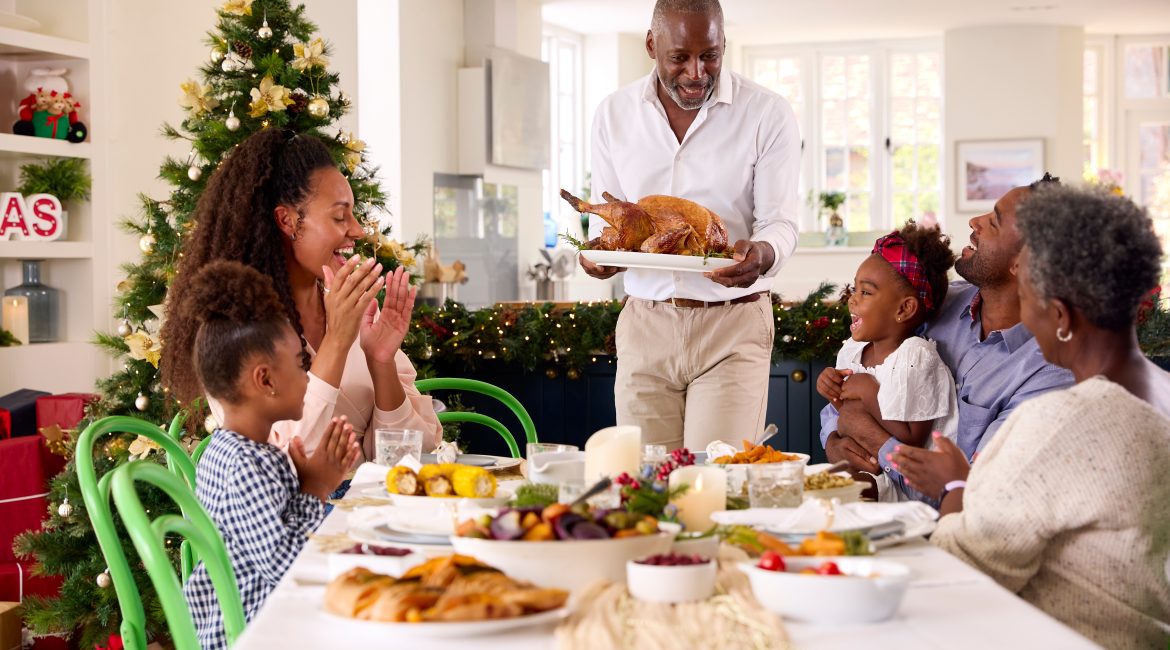The last thing you want is to have food poisoning whilst enjoying your much-deserved time off these holidays. We’ve put the facts together on food poisoning and top tips on how to prevent it from happening to you.
One of the top health risks during the festive season (and summer in general) is food poisoning. A reason for the number of food poisonings increasing during the holidays is largely due to the increase in temperature. More foods such as braai meat are left out of the fridge or freezer for too long and can cause bacteria to rapidly grow and result in food poisoning.
What is food poisoning?
Food poisoning is caused by bacteria (and sometimes viruses or other germs) that contaminate the food we eat or liquids we drink. You cannot smell, taste or see these bacteria, but they have a powerful and negative effect on your body.
When germs that contaminate the food get into our digestive tracts, they release toxins which cause diarrhoea and vomiting (two of the most common symptoms of food poisoning). These infectious organisms can contaminate your food during any point of processing or production (i.e. cooking). Contamination can even happen in your own home if food is incorrectly handled during preparation or cooked incorrectly.
If you have food poisoning, then the symptoms can start within the first few hours after being infected. Fortunately, food poisoning doesn’t last that long and most people will recover within a few days. In some severe cases, you might need to visit your doctor or go to the hospital. The main reason for medical intervention is due to the dehydration caused by the illness. It helps if you have medical aid or a health insurance plan to help cover these medical bills.
What are the symptoms of food poisoning?
The symptoms will depend on the type of germ that caused the food poisoning. Most people start to feel sick within the first few hours. Symptoms include:
- Nausea
- Vomiting
- Diarrhoea
- Belly cramps and pains
- Fever
Some people may only experience symptoms after a few days or weeks after eating contaminated food. The symptoms can last between a couple of hours to several days.
Discover: 6 Symptoms of Poor Gut Health (Plus how to improve it)
When should I see my doctor for food poisoning?
If you suffer from any of the below symptoms, then you need to see your doctor:
- You are unable to keep any liquid down and are suffering from frequent episodes of vomiting.
- You have bloody stools or vomit.
- Your diarrhoea lasts for more than 3 days.
- You suffer from extreme pain or serious abdominal cramping.
- Your temperature is higher than 38 degrees.
- You show signs and symptoms of dehydration – dry mouth, excessive thirst, little or no urination, dizziness, severe weakness.
- You suffer from muscle weakness, tingling in your arms, blurry vision.
In emergency situations like these it helps to have health insurance that will pay you BEFORE you see your doctor – which is where Oneplan Health Insurance comes in! All you have to do is load funds to your Onecard on the Oneplan App and swipe after your appointment. A real lifesaver during this expensive festive period.
How is food poisoning caused?
The contamination of your food or drinks can happen at any time during production, which includes growing the product, harvesting it, processing the food, storing it and shipping or prepping.
The cause of food poisoning is often cross-contamination, which is when harmful organisms are transferred from one surface to another. This often happens with raw foods such as salads and other fresh produce (as it is not cooked). Because the food is not cooked, harmful organisms are not destroyed before you eat it, and this can cause food poisoning.
Food safety tips for the holidays
Make sure you wash your hands, food surfaces and utensils
You need to wash your hands with soap and water before and AFTER handling food. Wash your utensils with hot water and soap, as well as surfaces and any cutting boards.
Keep your raw foods separated from fresh produce and other ready-to-eat foods
When you are grocery shopping, storing food or preparing food, make sure you keep your raw meat away from other foods.
Another interesting read: Good Food for Women’s Health
Make sure you cook your foods at a safe temperature
The best way to do this is by using a food thermometer. Most harmful bacteria is killed when cooking food at the right temperature. Ground beef should be cooked to 71.1 degrees. Steaks, chops, lamb, veal, and pork should be cooked to at least 62.8 degrees. Turkey and chicken should be cooked to 73.9 degrees. Ensure that all shellfish are thoroughly cooked.
Put your perishable foods in the fridge or freezer
You need to freeze or refrigerate perishable foods within 2 hours of preparing or purchasing them. If the room temperature is above 32 degrees, then you need to do this within one hour.
Properly defrost your food
The safest way to thaw food is to defrost it in the fridge. If you use a microwave to defrost it, then make sure you cook it immediately.
When in doubt, throw it out
If you are a little wary about the food you are preparing, then discard it. If your food is left at room temperature for too long, then this can cause toxins or bacteria to grow that CANNOT be destroyed during the cooking process.
Your Health Insurance Family,
Oneplan




